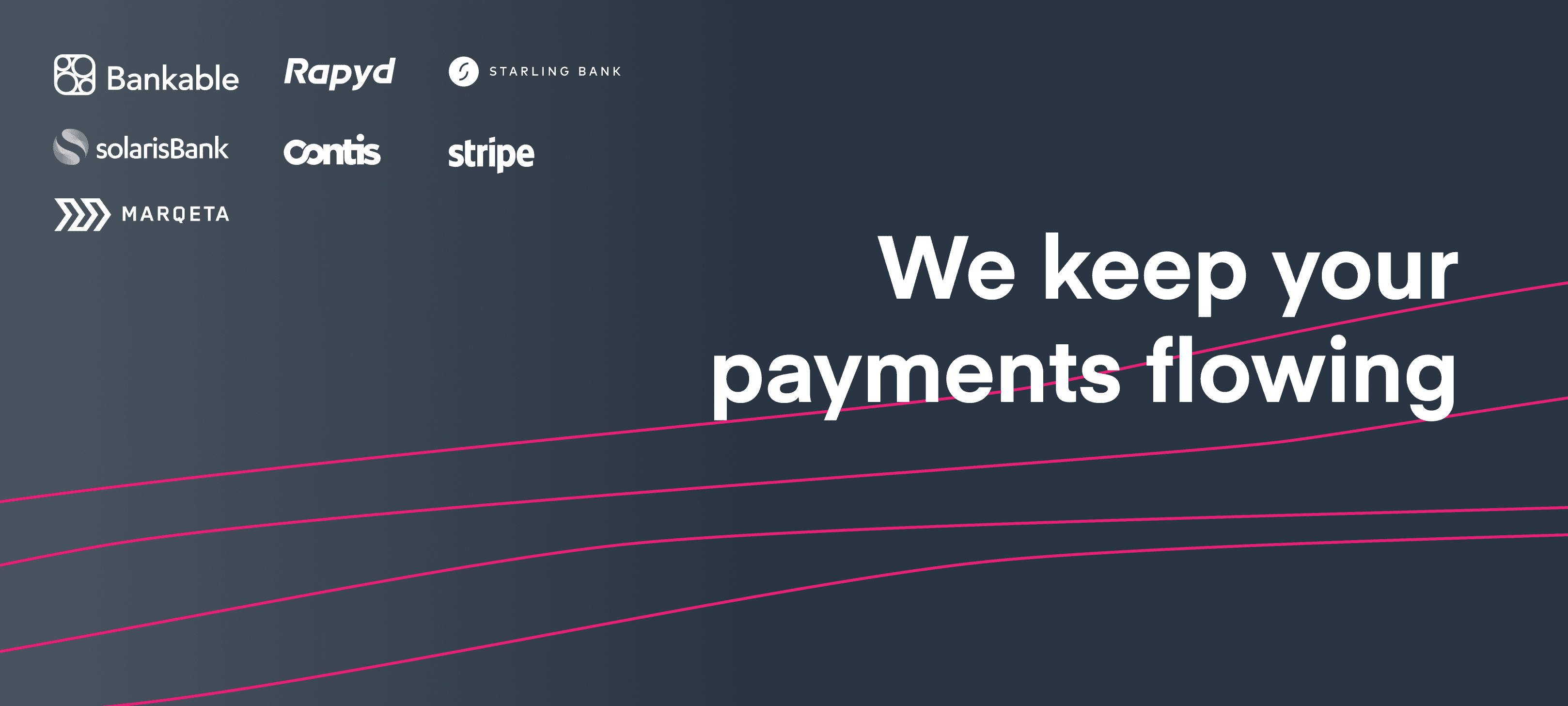Recent high-profile fintech provider failures — like Wirecard — have shown that relying on a single provider for essential banking services is potentially catastrophic for your fintech. While business media is focused on the macro fallout from questionable management practices, the fintech community is focused on the practical implications of this situation, namely what to do when an essential building block, like Wirecard, shows itself to be unreliable. But this is not a time to throw innovation in banking and wider financial services under the bus.
This is time for us all to remember how important fintech is to underserved communities around the world. Let us remember that we are giving them opportunities to engage in commerce unlike anything ever before. At the same time, they are relying on us to give them reliable and transparent service. This is a massive responsibility and we must be the best version of ourselves that we possibly can to make this happen. But whatever we do, we must keep in mind that people might need their money right away, so keeping the payment tap on and payments flowing is critical.
Before I explain how we do that, let’s summarize the current situation as of early July 2020. We recently learned about foul play over at Wirecard, which resulted in UK regulator FCA temporarily disabling cards issued by Wirecard or by opening regulatory investigations into the company’s many subsidiaries and partners. As a result, the Financial Times reported “millions of digital banking customers unable to access their money”. For example “users of the Anna app were told they had less than an hour to withdraw funds before all 20,000 accounts were frozen”. The actual money for these customers was safe; however, access to that money seemed to be near impossible for many. This was truly unacceptable for end consumers, especially for those customers who have moved significant amounts of money to these accounts or even use it for daily operations of their business. The FCA has now lifted the freeze but many customers really went through a couple of days of shock. Trust has definitely been eroded.
We expect some of many of these freezes to subside and hopefully, when you are reading this at some point in the future, all affected people now have access to their hard-earned money. But before that happens, let’s keep our cool in the fintech industry and fix the issues at hand. First, we need to help those fintechs stuck in the mud unable to move forward. Second, we need to build more robust backup providers and redundancies, so that future outages and failures are mitigated. Of course, having multiple providers is not always economically feasible and you always have to consider how this will impact your costs.
Let’s take a look at one of our clients, Twisto. They provide payment cards and services, which let you choose if you pay straight away or later. Many of their payment cards were rendered useless at the end of last week because they were using Wirecard, so they immediately accelerated the launch of new cards powered by Marqeta. Many customers can already use virtual cards and they will receive new physical cards soon. But many aren’t in their situation and there are now dozens of fintechs stuck with just one provider and many are now aware of the catastrophic impact of such an outage or freeze.
So what can you do to get unstuck and be ready for the worst? Are you the victim of Wirecard foul play or has this motivated you into action? In both cases, you have to do the same exact thing. Find backup providers and consider integrating them if the economics of it all make sense. Easy, right?
Actually, it is a lot easier than it used to be. With the advent of banking-as-a-service and proliferation of various card processing platforms, you now have dozens of providers to choose from to use as primary and secondary card issuers and banking service providers like Marqeta, Railsbank, Stripe, Bankable, Contis, Treezor, Rapyd, Solarisbank, Starling Bank and many others.
So which should you start working with? I hate to use this standard answer but it really depends on your needs. You might have your own banking licence or you might even be able to issue cards yourself. You might not have the capability to do either and you need help setting things up from the beginning. We worked with Cledara to launch a subscription management service using virtual cards from scratch to live cards in under two months with Railsbank.
Do you want to build your own custom app or can you live with a whitelabel frontend with medium complexity. We built the prepaid SKPAY card in the cloud in just a few months using a whitelabel app. Or we built a completely custom mobile app on top of Thought Machine core banking system for Standard Chartered Bank’s Mox, one of the first virtual banks in Hong Kong. There are many options, so please keep in mind that your situation might be very different from other fintechs.
The most important thing to do is to not remain stuck. Regardless of whether Wirecard has affected you or not, this is the time to put together a contingency plan, talk to multiple providers about alternative options and discuss with them for whether their services are appropriate for you. And if you don’t know, come to a company like us at Vacuumlabs. We have done this before and we can guide you through the decision making process.
Faith in Wirecard has been eroded and some of us have been left shaken. We are living through turbulent times and end consumers are rightfully alarmed when they hear their card is no longer working due to an infrastructure company like Wirecard going down. After all, as the consumer, you have a relationship with your fintech or challenger bank, not their providers. You should not be a victim of foul play and yet millions were left without access to cash for days.
While some might see this as an opportunity to throw fintech under the bus, we believe this is an opportunity for the innovators of financial services to plan for more contingency and become more transparent about the providers powering their apps.
As founders and creators, we don’t want to be stuck in the mud as our competitors rush past us. So let’s commit to building more resilience into our fintechs and challenger banks.
And let’s remember that we are finally giving underserved communities the ability to bank, so when things fail, let’s give them access to their cash in the most painless way possible. Your customers will love you for this.








